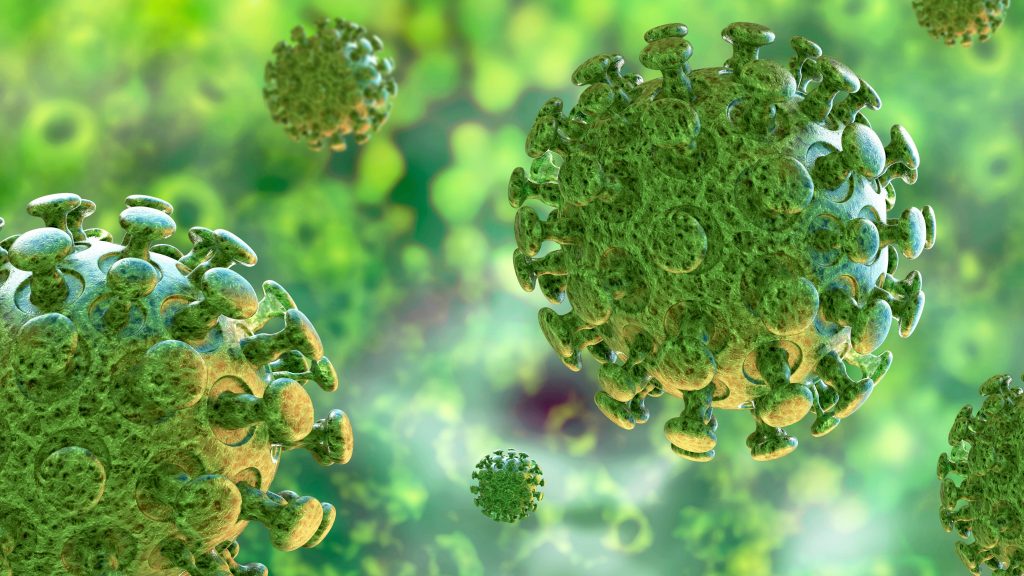-
COVID-19
Q&A on COVID-19 from Mayo Clinic

Watch Dr. Pritish Tosh talk about COVID-19:
Journalists: Broadcast-quality sound bites with infectious diseases specialist Dr. Pritish Tosh answering additional questions are available in the downloads at the end of the post. Please "Courtesy: Mayo Clinic News Network."
What exactly is coronavirus?
COVID-19 is a newly identified viral disease in the coronavirus family, but it can be more severe and spreads easily. Diagnosis is difficult because it shares several symptoms with influenza.
How is COVID-19 transmitted?
COVID-19 is thought to spread similarly to influenza. That is, it spreads person to person through respiratory droplets from an infected person's cough or sneeze. These droplets can land on surfaces within about 6 feet and can spread to other people after they contact these infected surfaces with their hands and subsequently touch their face.
Can I catch COVID-19 from contact with an object rather than a person?
Yes, you can catch COVID-19 from an object if the surface of that object has live virus on it. How long the virus can live outside an organism is unknown. Expert estimates range from a few hours to up to nine days, depending on the type of surface, surrounding temperature and environment.
Can a person have COVID-19 without having symptoms?
Yes.
Is there a vaccine for COVID-19?
There is currently no vaccine for COVID-19. The National Institutes of Health is developing a vaccine, but it will not be ready and approved for use for at least a year or more.
What should I do if I have symptoms of COVID-19?
If you have symptoms of COVID-19, call your local health care provider or hospital, and ask how best to be evaluated. Do not go to your health care provider or hospital without calling first.
Is Mayo Clinic prepared to handle these COVID-19 cases?
Yes, Mayo Clinic is prepared to treat patients with COVID-19. Mayo also is prepared to do so at a pandemic level, if needed. That said, know that Mayo will treat patients as part of a community wide plan in coordination with public health authorities.
How is a patient treated for COVID-19?
The basic premise of preventing disease transmission is to identify patients who show symptoms, isolate those patients from others for appropriate assessment, and inform appropriate staff and authorities for further response. If people appear with symptoms, they will be asked to wear a mask and answer a series of questions about their health and travel. Based on their answers and vital signs, they will be isolated from other patients while COVID-19 test results can be verified. This may take several days.
Patients who test positive for COVID-19 are isolated and treated. Currently, there is no antiviral treatment for COVID-19. Specific interventions are taken in more severe cases, or with patients with compromised immune systems or complex illnesses.
What can I do to avoid COVID-19?
To avoid COVID-19, you should:
- Keep your hands clean.
- Avoid touching your eyes, nose and mouth.
- Cover your cough and sneezes to keep germs from spreading to others.
- Clean and disinfect high-touch surfaces routinely.
- Avoid close contact with people who are sick.
- Stay home when you are sick.
Should I wear a face mask?
Regarding whether you should wear a face mask, the Centers for Disease Control and Prevention (CDC) provides this guidance:
CDC does not recommend that people who are well wear a facemask to protect themselves from respiratory illnesses, including COVID-19. You should only wear a mask if a healthcare professional recommends it. A facemask should be used by people who have COVID-19 and are showing symptoms. This is to protect others from the risk of getting infected. The use of facemasks also is crucial for health workers and other people who are taking care of someone infected with COVID-19 in close settings (at home or in a health care facility).
How will I know if there are cases of COVID-19 in my community?
Local departments of public health and the CDC are responsible for publicly reporting COVID-19 cases.
Mayo Clinic is committed to the privacy of its patients and complies with all applicable laws, including the Health Insurance Portability and Accountability Act, or HIPAA. As always, Mayo does not share patient-specific information with the media without prior authorization. Also, Mayo collaborates with public health authorities, including the CDC and local public health authorities, as appropriate. These authorities are best-positioned to provide public health information.
About this Q&A:
Many of these answers reference statements and standards already communicated by the CDC, the definitive source for prevention and procedure for infectious diseases in the U.S.
Related posts:
- Mayo Clinic expert offers insight on COVID-19
- COVID-19 moving toward a pandemic
- Mayo Clinic Minute: How to properly wash your hands
Information in this post was accurate at the time of its posting. Due to the fluid nature of the COVID-19 pandemic, scientific understanding, along with guidelines and recommendations, may have changed since the original publication date.
For more information and all your COVID-19 coverage, go to the Mayo Clinic News Network and mayoclinic.org.







